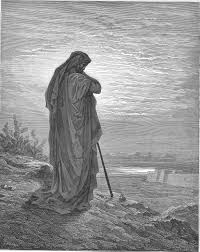 Every now and then, you may hear of a report of what researchers have termed “hysterical strength.” This is displayed when an act of what appears to be “superhuman” strength is demonstrated by someone who appears otherwise “normal.” It usually occurs during a rescue of others in a life and death situation. Most common among the anecdotal examples are mothers lifting boulders, an adult pulling a child from under a vehicle while lifting the structure of it, or some other weighty item pushed aside by a normal adult in order to rescue their trapped child and save their life or limb. Some speculate that it is accomplished by an overabundance of adrenaline brought on by hysterical fear, and physicians note that it can often result in torn muscles and sometimes even permanent physical impairment to the rescuer. Some examples from the news of this uncommon event include:
Every now and then, you may hear of a report of what researchers have termed “hysterical strength.” This is displayed when an act of what appears to be “superhuman” strength is demonstrated by someone who appears otherwise “normal.” It usually occurs during a rescue of others in a life and death situation. Most common among the anecdotal examples are mothers lifting boulders, an adult pulling a child from under a vehicle while lifting the structure of it, or some other weighty item pushed aside by a normal adult in order to rescue their trapped child and save their life or limb. Some speculate that it is accomplished by an overabundance of adrenaline brought on by hysterical fear, and physicians note that it can often result in torn muscles and sometimes even permanent physical impairment to the rescuer. Some examples from the news of this uncommon event include:
In 1982, in Lawrenceville, Georgia, Tony Cavallo was repairing a 1964 Chevrolet Impala automobile from underneath. The vehicle was propped up with jacks, but it fell. Cavallo’s mother, Mrs. Angela Cavallo, lifted the car high enough and long enough for two neighbours to replace the jacks and pull Tony from beneath the car. (Clark, Josh. “How can adrenaline help you lift a 3,500-pound car?” 11 December 2007. HowStuffWorks.com. retrieved 13 November 2008).
In 2006, Quebec resident Lydia Angiyou saved several children by fighting a polar bear until a local hunter shot it. (Jane George (2006-02-17). “Polar bear no match for fearsome mother in Ivujivik”. Nunatsiaq News / Nortext Publishing Corporation (Iqaluit). Retrieved 2009-01-01).
In 2009, in Kansas, 5 ft. 7 in (1.70 m), 185 lb. (84 kg) Nick Harris lifted a Mercury sedan to help a 6-year-old girl pinned beneath (Associated Press. “Kansas dad somehow lifts car off 6-year-old girl”, 18 December 2009. news.yahoo.com. retrieved 19 December 2009).
In 2011, in Tampa, Florida, 6 ft. 3 in. (1.91 m), 295 lb. (134 kg) college football player Danous Estenor lifted a 3,500 lb. (1,600 kg) car off of a man who had been caught underneath. The man was a tow truck driver who had been pinned under the rear tire of a 1990 Cadillac Seville, which had lurched forward as he worked underneath it. The man suffered only minor injuries (Greg Auman (2011-06-24). “USF Bulls offensive lineman Danous Estenor lifts car to free trapped man”. St. Petersburg Times (Tampa Bay, FL).
In 2012, in Virginia, 22-year-old Lauren Kornacki rescued her father, Alec Kornacki, after the jack used to prop up his BMW slipped, pinning him under it. Lauren lifted the car, then performed CPR on her father and saved his life. (http://abcnews.go.com/US/superhero-woman-lifts-car-off-ad/story?id=16907591#.UMay 9Hfeba4).
In 2013, in Oregon, teenage sisters, Hanna (age 16) & Haylee (age 14) lifted a tractor to save their father pinned underneath. (http://www.foxnews.com/us/2013/04/11/oregon-man-pinned-under-3000-pound-tractor-saved-by-two-teen-daughters/).
In each of these cases, otherwise normal people did the extraordinary – and they rescued another person. Most of us love these kinds of stories! Just imagining that people can, under duress, come to the rescue gives us a special kind of hope. Knowing that they did perform extraordinary rescue to save another, the people I mentioned gained a sense of special courage and love. Often in these stories, they are referred to as “heroes.”
In the physical realm, it is easy to see the heavy lifting and the rescue – whereas in the spiritual realm it is less obvious, but more significant – because it is eternally valuable. I am thinking a spiritual leader, and his writings to an oppressed congregation. I am think about how he gave hope in the face of suffering for their faith. We are again returned to the life of Paul the Apostle. It’s true, he didn’t lift an overturned chariot off a helpless child, nor did he fend off a runaway camel in the marketplace – but he was used of God to rescue believers who were feeling the weight of persecution, confusion and discouragement. He lifted baby Christians to help effect a spiritual rescue from the weight on them. Let me assure you: There is very little that a believer will ever do that is more difficult than lifting another disciple of Jesus who is beat down – but there is little that is as rewarding!
Key Principle: Mature believers can lift younger believers by offering God’s perspective (through His Word) to those trapped in a tough place.
There were three problems in Thessalonica that Paul offered help concerning:
The Attack of Persecution: Inspiration to Oppressed Christians
The church barely got started, and was swamped with persecutors and problems – they needed confidence that God understood their problem.
2 Thessalonians 1:1 Paul and Silvanus and Timothy, To the church of the Thessalonians in God our Father and the Lord Jesus Christ: 2 Grace to you and peace from God the Father and the Lord Jesus Christ. 3 We ought always to give thanks to God for you, brethren, as is [only] fitting, because your faith is greatly enlarged, and the love of each one of you toward one another grows [ever] greater; 4 therefore, we ourselves speak proudly of you among the churches of God for your perseverance and faith in the midst of all your persecutions and afflictions which you endure. 5 [This is] a plain indication of God’s righteous judgment so that you will be considered worthy of the kingdom of God, for which indeed you are suffering. 6 For after all it is [only] just for God to repay with affliction those who afflict you, 7 and [to give] relief to you who are afflicted and to us as well when the Lord Jesus will be revealed from heaven with His mighty angels in flaming fire, 8 dealing out retribution to those who do not know God and to those who do not obey the gospel of our Lord Jesus. 9 These will pay the penalty of eternal destruction, away from the presence of the Lord and from the glory of His power, 10 when He comes to be glorified in His saints on that day, and to be marveled at among all who have believed– for our testimony to you was believed. 11 To this end also we pray for you always, that our God will count you worthy of your calling, and fulfill every desire for goodness and the work of faith with power, 12 so that the name of our Lord Jesus will be glorified in you, and you in Him, according to the grace of our God and [the] Lord Jesus Christ.
One of the most powerful attacks of the enemy is PERSECUTION. It is not simply the act of beating down believers that he uses. He seeks to get believers stirred with a rage of injustice in order to get them to doubt God’s control or perhaps question God’s true goodness. Troubles make us impatient at best, cynical at worst. This is an old ploy – and the enemy has used it since the beginning of his pursuit to destroy God’s program. Remember this: Because people are against your message does not mean that the message is wrong. It may mean their hearts are the problem. If you observe the verses we read closely, the condition of the attacker’s hearts was made apparent.
What was God’s answer? He offered comforting truths about the way He plans to deal in judgment. God is not unaware of the unfair attacks believers suffer – He simply awaits the proper time to respond. This is the nature of 2 Thessalonians 1. Be careful of being led away from sharing Jesus because of the injustice of an irrational lost world. It is a trick. Judgment will come in due course – but not until the last man, woman or child is reached by an obedient believer! If we allow ourselves to get stirred up against injustice without grasping God’s heart, love will dissipate, and anger will overtake our call to obedience. In our world, wrong will be called right. God will be mocked. People will make outrageous charges against the people of the Truth – and allow others who are clearly sinister to walk by untouched. We must anticipate it, and we dare not allow ourselves to be distracted by hatred – that isn’t a Christian response to persecution. What ARE we to do? How do believers take heart in persecution?
Paul offered a number of important ways to respond:
First, believers should remember that when we follow God, our message keeps growing. People we do not know are hearing of our testimony, and they are better able to make it through the testing of persecution because of our steadfastness in the Gospel (2 Thessalonians 1:3-5).
Second, we must be settled by the fact that God has promised He will deal with those who are hurting His people (2 Thessalonians 1:6). He has not forgotten those who are suffering, and He will make all things right in the end.
Third, we must recognize the timing of the Lord in regard to judgment (2 Thessalonians 1:7-8). Christians will be killed, as they have been for centuries. They will be mocked, ostracized and pressed by a lost world. That isn’t a sign that God is dead – it is a sign that what He promised has continued to come to pass. God doesn’t set His prophetic watch by our comfort – generations before us have learned this lesson. It may now become our turn.
Fourth, remember that the suffering of every follower of Jesus has an end, but the judgment of those without Christ has no end (2 Thessalonians 1:9). The most profound description of their judgment is the word “eternal”. Does that not move your heart to pray against the deception that has so blinded them? We must not forget that the “Magnificent One” is on His way! (2 Thessalonians 1:10).
Finally, we must recall that suffering is a calling of God that is given to refine a people to bring glory to Him. The world doesn’t understand the concept of such sacrifice, and worldly Christians won’t either. God created us to follow Him, and saved us to powerfully glorify Jesus (2 Thessalonians 1:11-12). Our lives are FOR HIM, or they are for us. True Christianity has offered to God all that we are to be used by Him for His purpose – whether in comfort or in persecution.
The Attack of Confusion: Instruction to Perplexed Christians
Some generations were not attacked by overt persecution. Yet, they were not exempt from attack. Theirs came in the form of confusing tricks planted by the enemy. In the case of the Thessalonians, on top of external pressures, some were shaken by a forged letter with false explanations of eschatology that were designed to throw them off track of following the truth – they needed a refresher of what Paul already taught them.
2:1 Now we request you, brethren, with regard to the coming of our Lord Jesus Christ and our gathering together to Him, 2 that you not be quickly shaken from your composure or be disturbed either by a spirit or a message or a letter as if from us, to the effect that the day of the Lord has come. 3 Let no one in any way deceive you, for [it will not come] unless the apostasy comes first, and the man of lawlessness is revealed, the son of destruction, 4 who opposes and exalts himself above every so-called god or object of worship, so that he takes his seat in the temple of God, displaying himself as being God. 5 Do you not remember that while I was still with you, I was telling you these things? 6 And you know what restrains him now, so that in his time he will be revealed. 7 For the mystery of lawlessness is already at work; only he who now restrains [will do so] until he is taken out of the way. 8 Then that lawless one will be revealed whom the Lord will slay with the breath of His mouth and bring to an end by the appearance of His coming; 9 [that is], the one whose coming is in accord with the activity of Satan, with all power and signs and false wonders, 10 and with all the deception of wickedness for those who perish, because they did not receive the love of the truth so as to be saved. 11 For this reason God will send upon them a deluding influence so that they will believe what is false, 12 in order that they all may be judged who did not believe the truth, but took pleasure in wickedness. 13 But we should always give thanks to God for you, brethren beloved by the Lord, because God has chosen you from the beginning for salvation through sanctification by the Spirit and faith in the truth. 14 It was for this He called you through our gospel, that you may gain the glory of our Lord Jesus Christ. 15 So then, brethren, stand firm and hold to the traditions which you were taught, whether by word [of mouth] or by letter from us. 16 Now may our Lord Jesus Christ Himself and God our Father, who has loved us and given us eternal comfort and good hope by grace, 17 comfort and strengthen your hearts in every good work and word.
This second attack of the enemy – this CONFUSION – is and example of the intentional mixing of false doctrine that is planted like an explosive device beside the road. It often stems from someone’s intention and improper use of the text of Scripture. Sometimes it is the elevation of false scriptures – or the relentless charges against the true Word of God. Still other times, it is the misguided and poorly formed teaching of a wayward pulpit. After two thousand years, the enemy has played a role in all of these.
Walk the streets and talk to people about Christ. You will bump into the Mormon that has another book beside the Bible – and the discussion will shift to canonization and what is the Word of God – away from the clear need for Jesus as Savior. Keep walking, you will find the cultural Christian of the Bible belt that has been fed a Hallmark card Jesus who loves everyone and condemns no one’s feelings. He is the fairy tale Jesus that is not found in the Gospels, but no matter, He is “preached” in all kinds of churches as they find rights for all sorts of moral wrong. Go a bit further, you will meet the atheist, the agnostic and the cynic. If they don’t frustrate you, keep walking and you will find the “self-benefit” Christian, who has been systematically taught to pick and choose morsels of from their bullet-point Bible without context – and they will begin to espouse some kind of mixture of Republican politics and conservatism, all rolled into their so-called “Christian” faith. After unprecedented blessing of the church for decades, you can see the damage of liberal Christianity, prosperity Christianity, television pop Christianity… but you will struggle to find well-balanced and mature believers that know God’s Word. Confusion has been a major attack in our time.
What was God’s answer? He offered in the letter some statements that were to help His followers recognize the voice of the Heavenly Shepherd, and follow Him alone. This is the sound found in 2 Thessalonians 2. Be careful to learn the Word in its context. Be careful to learn from sources that have been well-grounded, and evidence properly living. No one is perfect, and no one’s understanding is complete – but there are clearly better sources and worse ones. Stay away from the flimsy and speculative – and be proactive about your growth in understanding of the Word.
Remember that a events unfold, God revealed the future holds. Here is what Paul shared:
First, don’t think that the wrath of the “Day of the Lord” is what you are experiencing – it isn’t (2 Thessalonians 2:1-2). You are being persecuted, but that isn’t the Great Tribulation – it is YOUR great tribulation.
Second, don’t be fooled – first is the “snatching” and then the “Man of Sin” is revealed (2 Thessalonians 2:3). The Greek noun “apostasia” is used twice in the New Testament (here and Acts 21:21 referencing Paul as ” teaching Jews among the Gentiles to forsake (apostasia) Moses.” The term is “apo” or from and “istemi” “stand” with a core meaning of “departure”. The Liddell and Scott Greek Lexicon defines “apostasia” as either “a defection or revolt” or a “departure or disappearance.”
I know there is confusion in the church about whether this means we should expect a great falling away from the faith or whether or not this refers to the snatching away of the church. Let me take a moment and make a brief argument in favor of Paul stating this was the removal of the church to the clouds, and not some great liberal departure from the truth of the Christian faith.
First, recognize the word “apostasia” was rendered by the first seven English translations as either ” departure” or ” departing.” They are as follows: Wycliffe Bible (1384); Tyndale Bible (1526); Coverdale Bible (1535); Cranmer Bible (1539); Breeches Bible (1576); Beza Bible (1583); Geneva Bible (1608). In addition, the verb form of the word is used often of a “spatial departure” or exit from the scene.
Next, recognize that translators of the King James Version were the first to introduce the new rendering of “apostasia” as ” falling away” though no valid reason was ever given by them.
Finally, put the statement in the context of the time and place Paul was writing. He COULD have been saying to them: “Don’t worry, the tribulation won’t come until millions accept the Gospel, and then through a series of enemy attacks they systematically fall away from Christ and the truth!” Would that make sense to them? They were a small band of believers that had never seen many come to Christ at all. Would they have conceptualized the future of the West? Since Paul specifically wrote in the first letter about the coming of Jesus to remove the believers to the clouds (1 Thessalonians 4:13-18) is it unreasonable that this single word should recall that “departure” as preparatory of the Tribulation?
IF the word “apostasia” referred to the departure of the church at the “Rapture”, that event will precede the revealing of the “man of sin” and the Great Tribulation he brings with him. If it meant “falling away” from the faith, that will precede the revelation of the “man of sin” and the Great Tribulation. Does anyone really want to try to convince us right now that the world is growing TOWARD CHRIST? In either case, the end looks like it is closing in…Taking into account both theological approaches, our expectation is either greater persecution before the end or a rescue in the clouds. I’d keep my eyes on the eastern sky.
Paul to them: “Don’t forget!” There is a restraining influence on the man of lawlessness’ full revealing that will be removed before the end comes. (2:4-7). The influence is there, and the hunger to be revealed – but there is a God-ordained restraint upon him right now. I believe that is the believer. I cannot imagine what will happen to the definition of marriage the moment every believer is removed from the legislature. People picture the tragedy of the moments after the rapture by showing disappearing pilots from planes. That is not the worst of it. It is the disappearance of Biblically derived morality from law that will destroy civilian society.
Paul told them: “Don’t be dismayed, Jesus will deal with all that is created by the evil one’s power!” (2 Thessalonians 2:8, paraphrased). The enemy will perform his work while he can and God will dull minds as a penalty – but it will all be dealt with in the coming judgment (2 Thessalonians 2:9-12).
Paul called believers to be thankful that God has called us to rescue and deliverance! (2 Thessalonians 2:13-17). The promises of God are true, and clinging to His Word is the answer to confusion! Grab it! Read it! Know It!
The Attack of Discouragement: Injunctions for Dealing with Disorderly Christians
As if problems from outside the faith weren’t bad enough – some Christians were living unruly and undisciplined lives and confusing the testimony of the church. Others in the church were also upset by the disorderly Christians, who were not living out the truth – but they weren’t sure how to respond. They wanted to be loving, but they also wanted to be right in their response.
This third attack is still common today, that of DISCOURAGEMENT. It is hard to serve God when you see so many believers that act as bad as the world! Paul ascribes the bad behavior they saw in the wayward as undisciplined behavior. He didn’t simply call them lazy, he argued that proper disciplines in life that were essential to obedience were simply lacking – and that resulted in dependencies on others that were not right.
What was God’s answer? The church needed to take external actions to make clear the unacceptable nature of the wayward believer’s individual choices. The body needed to instruct, correct and if need be, withdraw from them. Discouragement infects the body when it becomes a victim of the situation and leaders refuse to respond to sin. If left alone, the body would be constantly weakened – sapped of resources and grumbling behind the scenes. The best way to deal with wrong is mark it, and then make clear the proper boundaries and responses to behaviors.
3:1 Finally, brethren, pray for us that the word of the Lord will spread rapidly and be glorified, just as [it did] also with you; 2 and that we will be rescued from perverse and evil men; for not all have faith. 3 But the Lord is faithful, and He will strengthen and protect you from the evil [one]. 4 We have confidence in the Lord concerning you, that you are doing and will [continue to] do what we command. 5 May the Lord direct your hearts into the love of God and into the steadfastness of Christ. 6 Now we command you, brethren, in the name of our Lord Jesus Christ, that you keep away from every brother who leads an unruly life and not according to the tradition which you received from us. 7 For you yourselves know how you ought to follow our example, because we did not act in an undisciplined manner among you, 8 nor did we eat anyone’s bread without paying for it, but with labor and hardship we [kept] working night and day so that we would not be a burden to any of you; 9 not because we do not have the right [to this], but in order to offer ourselves as a model for you, so that you would follow our example. 10 For even when we were with you, we used to give you this order: if anyone is not willing to work, then he is not to eat, either. 11 For we hear that some among you are leading an undisciplined life, doing no work at all, but acting like busybodies. 12 Now such persons we command and exhort in the Lord Jesus Christ to work in quiet fashion and eat their own bread. 13 But as for you, brethren, do not grow weary of doing good. 14 If anyone does not obey our instruction in this letter, take special note of that person and do not associate with him, so that he will be put to shame. 15 [Yet] do not regard him as an enemy, but admonish him as a brother. 16 Now may the Lord of peace Himself continually grant you peace in every circumstance. The Lord be with you all! 17 I, Paul, write this greeting with my own hand, and this is a distinguishing mark in every letter; this is the way I write. 18 The grace of our Lord Jesus Christ be with you all.
How should believers handle those who are wayward in the ranks? Paul offered seven directives:
1. Back away from them during their disobedience (3:6).
2. Keep walking in discipline and work hard (3:7).
3. Don’t try to get things from others for free – work hard (3:8-10).
4. Remember that people need productive work to do or they will multiply sins (3:11).
5. Recognize that practical instruction is part of the work of the church (3:12).
6. Don’t tire of doing right and walking in obedience (3:13-14a).
7. If someone won’t follow the Word, mark them and admonish them in brotherly affection (3:14b-15).
Mature believers can lift younger believers by offering God’s perspective (through His Word) to those trapped in a tough place.
In 1863, President Abraham Lincoln said, “We have been the recipients of the choicest bounties of Heaven; we have been preserved these many years in peace and prosperity; we have grown in numbers, wealth, and power as no other nation has ever grown. But we have forgotten God. We have forgotten the gracious hand which preserved us in peace and multiplied and enriched and strengthened us, and we have vainly imagined, in the deceitfulness of our hearts, that all these blessings were produced by some superior wisdom and virtue of our own. Intoxicated with unbroken success, we have become too self-sufficient to feel the necessity of redeeming and preserving grace, too proud to pray to the God that made us.” May we not allow this thinking to drive the church in this hour!
May we humble ourselves and recognize the goodness of God every moment we live without the threat of a sword on our children at home, and seek God prayerfully for our brothers and sisters whose bodies are being broken by evil men this very hour. May we trust God to lift them with grace we have not experienced, because they are facing terror we have not faced? May we remember that God knows every child’s name who is being brutalized, and He will make things right in His time? One more thing: Cherish your Bible, it may not always be accessible or well thought of – even here. Those under the sword don’t need our panic, they need our prayer-filled, joy-filled confident responses to help them stand. The attack is not over, it has just begun… but God has a plan.










 The qualifying mark of a real prophetic voice may be a broken heart – because in our weakness our Father can speak more powerfully through us.
The qualifying mark of a real prophetic voice may be a broken heart – because in our weakness our Father can speak more powerfully through us.






